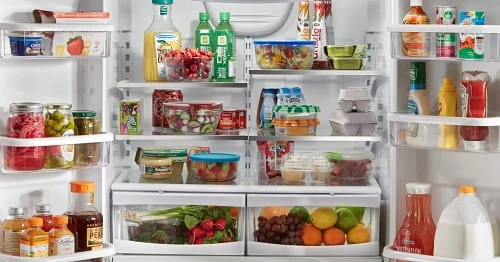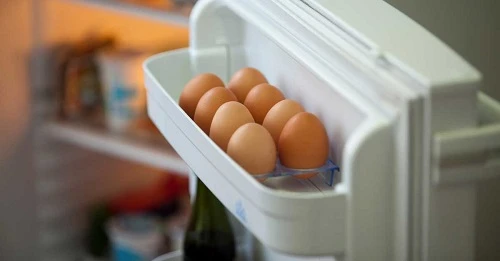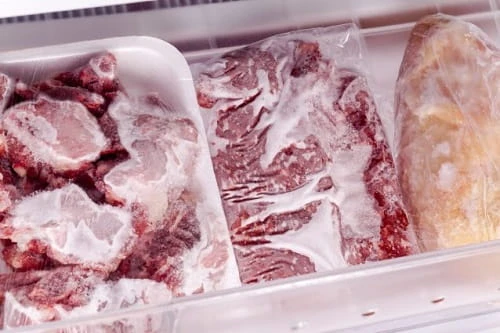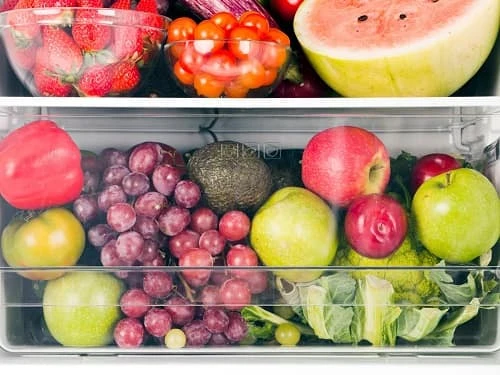by Christopher Jones
To many, proper food storage is seen as yet another chore that can lose priority overtime. Sometimes all you want to do is shove everything in the fridge or throw it on the counter and call it a day. This is not only unorganized, but can cause food to be unsanitary and unsafe to eat. Some may not even do this out of laziness, but because you just don’t know there is more to it. Within two hours, bacteria will begin to grow on perishable food items that are left out of the fridge. Not only can this happen outside, but inside the fridge as well! Refrigerators that are crammed full of groceries can have limited airflow causing certain spots to be warmer than others opened and unwrapped food items can become contaminated very quickly, and forgetting to clean your fridge means leaving out tasty treats for unwanted bacteria as well.
Contents

Obviously food food storage is very important, but for those of you left unconvinced, here’s a few more perks of proper food storage….
By storing foods properly you prolong food expiration, therefore giving you the most bang for your buck. Rather than eating till your food is half rotten then having to buy more, you can enjoy it for longer and waste less money buying food you already have.
For those of you mothers out there, you know how cluttered and messy things can get around the house. Organizing food is a wonderful thing to do as it allows you a sense of control and peace of mind when at least one thing is nice and orderly in the house.
As much as I love fresh produce, there is nothing more disappointing than the wilted lettuce and brown avocados you get from what was perfectly ripe and fresh just a few days before. Storing produce properly can’t prevent this, but can prolong the process giving the food maximum time to be fresh
Like I said earlier, It only takes two hours for perishables to begin growing bacteria, and in certain temperatures it can even be less than one! Spare your friends and family the smell and the diseases with just a bit of preventative measures.
Now that you understand the importance and benefits of food storage, let’s get down to business.

Eggs require two very different methods of storage depending on one factor: Farm Fresh, or From the Store.

If eggs are in fact fresh then it is important to understand that these eggs do not require refrigeration. Provided these eggs are unwashed, they actually have a natural coating that protects the eggs from bacteria. Just remember not to wash the egg until you are about to eat it, otherwise the coating is gone and it will spoil. Grocery store eggs, however, are a different story. Factory farms are required to power wash their eggs, which removes the protective coating. These eggs are to remain in the fridge unless you are using them. Boiled eggs should also be refrigerated and never left at room temperature for more than two hours. Eggs can be safely stored in cartoons and do not require an airtight seal.
Meat and poultry are most susceptible to bacteria growth and

spoiling as well as carrying diseases like salmonella. This is why it is very important to store them properly. In general, it is best preserved in the freezer for up to 4 months. You should only store meet in the fridge if you intend on eating it in the next 1-2 days. When storing raw meat in the refrigerator you should always keep it on the bottom shelves to prevent any juices from dripping on other food items. Make sure to put it in a water-tight container for this reason as well. Cooked meat can stay in the fridge for 3 to 4 days or frozen. So Long as your freezer does not go off at any point and remains a consistent temperature, cooked meat can be stored indefinitely.
While spoiled produce does not carry nearly as many germs, it can be a very displeasing sight as well as texture. Refrigerated produce should remain unwashed until used, and is best kept in its original packaging. Fresh greens and lettuce with a bit of sandy or dirt-like texture should be wrapped in damped paper towels and sealed in a plastic before being placed in the fridge

Fruits and Veggies that are ripe and ready to eat may be stored on your counter tops. They should be removed from any packaging and left loose. Some fruits, such as avocados will go very quickly from ripe to rotten. If you notice your avocado is ripe or close to being so, but do not plan on eating it anytime soon, it is best to store in the fridge. Because it will be peeled before eaten, it does not require any special containment and may simply be placed on the rack. Most veggies will rapidly deteriorate once cut, cucumbers, bell peppers, onions, and carrots are best kept in the fridge after they have been sliced or cut into. These are best stored in a storage container that keeps the veggies from touching any surface on the fridge, but is breathable. Think the baskets berries and lettuce come in. If this is not an option, tupperware will do. Plastic bags tend to bring liquid-y fruits and veggies, so try not to use those.
As you can see, proper storage takes a good bit of thought and effort. However, for the sake of cleanliness, freshness, longevity, finance, and order it is well worth the time. Not only is it cleaner and safer, but it saves money too! Think about all the spoiled food you’ve ever tossed. How much money is literally going in the trash? For the health of you and your family members it is very important to store food safely. While this article covers all the basics, every food item is a bit different so don’t be afraid to ask questions or do a bit of research. Trust me, a quick google is much easier than a week of food poisoning or salmonella.
 |
 |
 |
 |
 |
 |
 |
 |

About Christopher Jones
Chris is a true globetrotter. He has been to many destinations and tried different types of food from all over the world, yet he still loves finding new places and tasting their specialties. Chris has always had an entrepreneurial spirit and so he decided to go back to school at age 24 for his MBA at University of San Francisco so that he could have a better understanding of business strategy in order to start his own company. His favorite motto is “how can one live well, travel well, and work well without having good food every time?”
Kitchen Goodness
Check for FREE Gifts. Or get our Free Cookbooks right now.
Disable the Ad Block to reveal all the recipes. Once done that, click on any button below
 |
 |
 |
 |